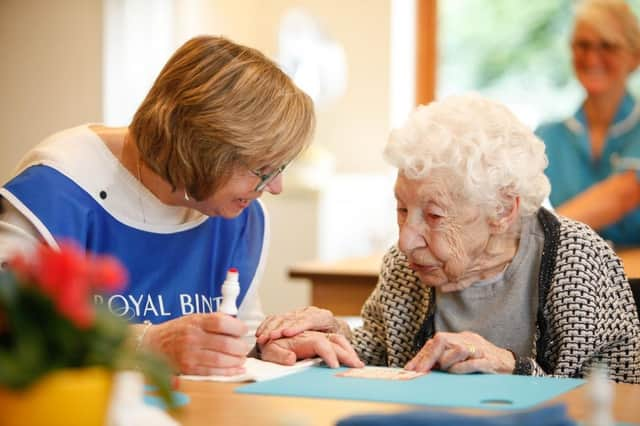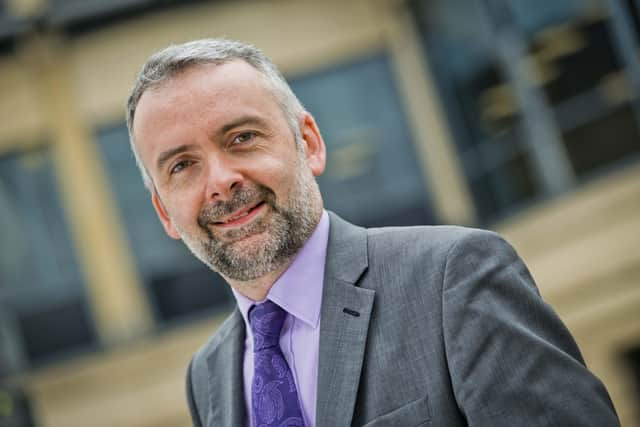Mark O’Donnell: Undervalued carers are doing their bit for elderly


In uncharted times like these, aspects of our life and community which we may have taken for granted become clearer. The critical importance of health and social care services has never been more evident.
Social care is vital for the people living with sight loss supported by Royal Blind and Scottish War Blinded, as they are for so many people with care needs in our society. It’s important we recognise the demands being placed on social care staff as a result of these exceptional circumstances and on thousands of unpaid carers providing vital support.
Advertisement
Hide AdAdvertisement
Hide AdAs social distancing means many of us move to home working, this is not possible for thousands of social care staff in Scotland providing lifeline care. Staff who are not in vulnerable groups are still heading into work and carrying out their vital roles, putting the needs of others before their own.


We know how hard-pressed our hospitals are in caring for those who are ill with Covid-19, with non-urgent operations postponed and additional pressures placed on doctors, nurses and hospital staff. It is also important to recognise how much more we are asking of our social care staff too, who work in a sector which has been under-resourced compared to other health and care services, and too often undervalued as well.
Royal Blind runs Scotland’s only two specialist care homes for older people with sight loss, helping meet an urgent challenge to ensure appropriate support for an increasing number who require residential nursing care. Current funding arrangements mean that these services are extremely heavily subsidised through our fundraising. Along with other third sector providers, we’re concerned that this is increasingly unsustainable and will only be made more so as a result of coronavirus.
Such has been our concern over the lack of public funding for these lifeline services, we joined with two other major charities providing social care services, CrossReach and Erskine, in submitting a joint statement to the Scottish Parliament’s Health and Sport Committee, calling for action. Our three charities provide residential and nursing care to thousands of older people in Scotland. We deliver high quality care by recruiting and retaining a compassionate and skilled workforce, committing to pay a living wage to our care staff and investing in specialist care.
However, the costs of the complex, dementia, palliative and end-of-life nursing care we provide have not been reflected in current funding arrangements agreed through the national care homes contract, leaving our charities subsidising local authority funded places by up to £500 per resident, per week.
As charities we bridge the funding gap for our beneficiaries in different ways – however, with rising costs and an increasingly challenging environment for fundraising, this has been becoming unsustainable for third sector providers even before the impact of coronavirus. More support is required for social care services which take a huge strain from the NHS in ordinary and extraordinary times by caring for people who, in not so recent memory, would have required hospital care and they do this at a vastly reduced cost. Today, of course, our absolute priority in these tremendously difficult times is continuing to provide care to the people we support through our services and in supporting our brave and selfless NHS colleagues. Our staff are coping with restrictions to family visits to care homes and supporting residents creatively and positively while they have to spend more time in their rooms for social distancing.
Although we don’t yet know how long we will have to take such drastic actions as a result of coronavirus, we do know our society will owe a great debt of gratitude to our social care staff and many others when we come through to better times. Whilst we appreciate that there will be long-term economic consequences of the pandemic across different sectors of society, it will also be clear to all that a new and different conversation is required about the real and sustained resources social care services need to continue their vital role.
Mark O’Donnell, chief executive, Royal Blind and Scottish War Blinded.